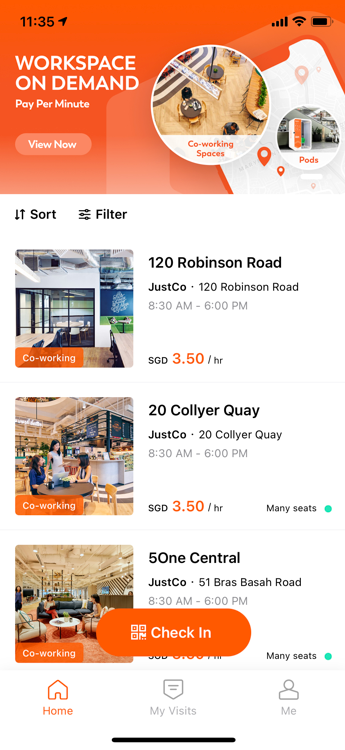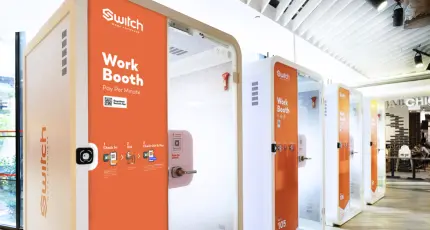The real estate industry has been slow to adopt technology compared to many other sectors. So when Dominic Penaloza left his job at WeWork China as the head of innovation and technology this spring, he decided to focus on proptech in Asia.
Instead of building a startup himself or investing in one, Penaloza combines both objectives by launching a “startup studio” called
REinvent
(“RE” short for “real estate”). The industry jargon refers to an organization that builds startups with an in-house team, hence it’s also referred to as a “startup factory” or “venture builder.” A famous example is Rocket Internet
, which is credited for building Lazada in Southeast Asia and Jumia in Africa.
Penaloza, a serial entrepreneur who
exited his co-working startup Naked Hub to WeWork China
in 2018, now runs a team of 45 across Shanghai, Taipei and Singapore, most of whom he has worked with at WeWork and Naked Hub. The studio is organized into what the chief executive calls product “squads” consisting of the likes of product managers, designers, engineers, and artificial intelligence experts, and has the capacity to work on four projects at one time.
The founder also brought onboard heavyweight investors to help the startup studio tackle a sector with deeply entrenched players. Among REinvent’s backers are
JustCo
, a major co-working company in the Asia Pacific backed by some of Asia’s biggest property owners, such as the Singaporen sovereign wealth fund GIC
; multi-national property developer Frasers Property
; and one of Japan’s leading real estate firms Daito Trust
.
REinvent has full ownership in the ventures it launches, while the three investors own equity in it. The company declined to disclose how much it has raised from its investors so far.
The financiers also importantly contribute strategic resources, Penaloza told TechCrunch in an interview. Started in May, REinvent has already launched two ventures, including one called
Switch
that lets individuals and enterprises book workspace and pay per minute, similar to how bike-sharing works. The difference is that Switch is a marketplace with third-party landlords like JustCo and Frasers, while bike-share companies often supply and operate the bikes themselves.

Screenshot of the Switch app
The marketplace today has a growing network of 2,500 desks at over 20 locations across Singapore, including small office booths that have sprung up across malls. It’s proposing on-demand workspace at a time when the whole world is forced by the coronavirus pandemic to rethink where to work physically.
“Real estate companies are all figuring out how to react to COVID, how to help organizations survive COVID and to prepare for the next pandemic so the impact on business would not be as big as this time,” said Penaloza.
Meanwhile, flexible work pods are an attractive proposition for mall owners, especially those in China looking for new tenants as e-commerce encroaches into offline retail.
“E-commerce was eating up the traditional retail model even before COVID. Developers in China are trying to repurpose some of their malls… There are now a lot of FB, experiential stores, cafes, and even co-working space inside malls,” observed Penaloza.
Penaloza
tested an early version
of his on-demand workspace vision back at WeWork China where he made the firm’s public space available to customers without a membership, capturing professionals who use Starbucks for meetings and remote working but providing a quieter environment and better WiFi.
The other product REinvent has introduced is SixSense, software for spatial analytics and social distance detection.
“Real estate is something not many people think about, but it’s one of the biggest industries on earth,” noted Penaloza. “Proptech in Asia and China is very early-stage but it is picking up.”
 简体中文
简体中文







